Short-term rentals in Portugal continue to be a popular choice for property owners and tourists. Many visitors prefer staying in local accommodations that provide a unique, homely experience.
Recent updates in Portugal’s short-term rentals sector have introduced new guidelines to balance the interests of both property owners and local communities. These changes impact how short-term rentals operate, especially in high-demand areas.
Portugal has introduced the “More Housing” package to ensure that housing remains accessible and affordable for residents. This package includes specific rules, like suspending new short-term rental licenses in certain high-density regions. However, owners with existing licenses now have the option to transfer these permits with the sale of their property, adding flexibility for property investors.
The government has also simplified regulations making it easier for owners to maintain their rental business. Portugal’s short-term rentals continue to attract investment due to these balanced changes, which allow property owners to benefit from steady rental income while supporting community housing needs.
The Short-Term Rental Market in Portugal
Short-term rentals in Portugal have become a popular choice for both tourists and property investors. Many visitors prefer the comfort and local feel of short-term rentals in Portugal, making these properties a desirable option over hotels.
This steady demand has created a profitable opportunity for property owners looking to rent out their homes, especially in tourist-heavy areas like Lisbon, Porto, and the Algarve. Global Property Guide provides information on real estate yields to assist property investors in evaluating rental returns.
Portugal’s short-term rentals attract property investors due to their ability to generate consistent income. Tourists enjoy the unique experience of staying in local accommodations that reflect Portugal’s culture, which drives up the demand for these properties.
For property owners, this market offers a chance to benefit financially while meeting the needs of Portugal’s thriving tourism sector.
Recent regulatory updates ensure that short-term rentals remain a viable investment by balancing property owners’ rights with the needs of local communities. These rules allow the market to continue growing while maintaining fair access to housing.
As interest in Portugal’s short-term rentals increases, the sector promises solid returns for those looking to invest in vacation rentals that offer both comfort and an authentic Portuguese experience.
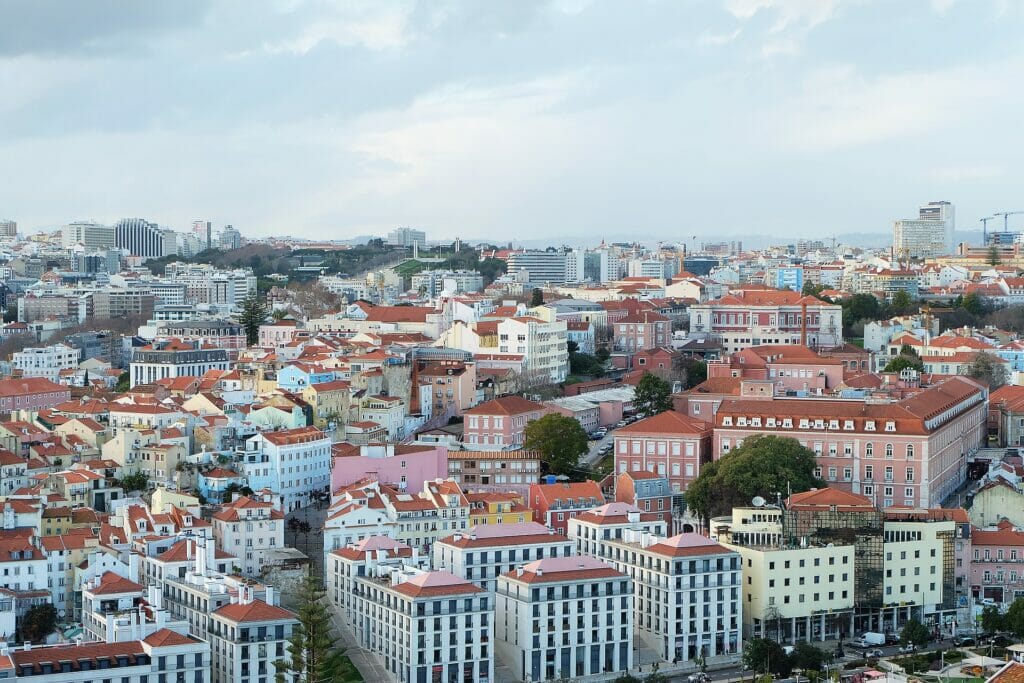
What is the AL License?
The AL (Alojamento Local) License allows property owners to legally operate short-term rentals in Portugal. This license ensures that properties meet the safety and quality standards set by the local authorities, giving tourists reliable and comfortable options for stays.
To obtain the AL license, property owners must follow a registration process that involves submitting necessary documents and meeting specific requirements.
The requirements for the AL license include having proper insurance, installing safety equipment like fire extinguishers, and ensuring the property is maintained to meet health and safety standards. This license is essential for anyone looking to enter the short-term rentals Portugal market, as it keeps the rental operations legal and compliant.
Portugal’s short-term rentals sector relies on these licensing standards to create a safe experience for visitors while supporting local regulations. The AL license supports property owners in meeting regulations and protecting tourists, making it a key part of Portugal’s growing rental market. Without this license, property owners cannot legally operate in the short-term rentals market, making it crucial for anyone interested in this sector.
What is the “Pacote Mais Habitação” or “More Housing” Package?
Portugal’s “More Housing” package, known as “Pacote Mais Habitação” introduces new regulations to help balance the housing market and address shortages. This package aims to make housing more accessible for residents and control rising housing costs, especially in areas with high demand.
The package brings specific changes for Portugal’s short-term rentals to ensure that local residents have fair access to affordable housing.
The “More Housing” package places restrictions on new licenses for short-term rentals in high-density areas. By limiting new licenses in these zones, the government seeks to create more housing options for residents rather than allowing all properties to become tourist rentals. This approach supports a healthier balance between tourism and local needs.
Portugal’s short-term rentals market remains open for business, but the “More Housing” package helps prevent an overload of short-term rentals in certain areas. Through these changes, the government supports a more sustainable rental market, promoting affordable housing options while still maintaining opportunities for property owners to participate in Portugal’s short-term rentals sector.

Changes in Short-Term Rental Licenses after November 1st, 2024
After November 1, 2024, Portugal introduced several changes to short-term rental licenses to help balance housing needs and protect Portugal’s short-term rentals market.
These updates aim to create stability for property owners while addressing concerns about housing shortages, especially in high-demand areas. Institute of Public Procurement, Real Estate and Construction serves as the official regulatory authority for Portugal’s real estate and construction industries.
Here’s a breakdown of these changes and how they impact Portugal’s short-term rentals sector.
1. Suspension of New Short-Term Rental Licenses in High-Density Areas
Portugal suspended new short-term rental licenses in areas considered high-density zones, where demand for housing is highest. This restriction limits the number of properties converting to short-term rentals in regions where locals struggle to find affordable housing. By controlling the number of short-term rental licenses, Portugal hopes to preserve housing for residents in these high-demand locations.
For property owners and investors, this means that new short-term rental licenses in high-density areas are on hold. Existing licenses remain valid, but anyone hoping to start new short-term rentals in these zones will need to consider these new rules.
2. Transfer of Short-Term License with Property Sale
The latest update allows short-term rental licenses to transfer with the sale of the property. Previously, licenses expired when a property changed ownership, but now the license can continue with the new buyer. This change benefits buyers who want to continue operating Portugal’s short-term rentals without applying for a new license.
Property owners can now market their properties as licensed rentals, adding value to the property and making it more attractive to investors. This new flexibility allows Portugal’s short-term rentals to maintain steady operations despite ownership changes.
3. No Additional CEAL Tax for Short-Term Rentals
Portugal decided against adding a new CEAL (Extraordinary Contribution on Local Accommodation) tax for short-term rentals. This decision removes the additional tax burden that some property owners feared, creating a more stable financial environment for short-term rental operators. By excluding the CEAL tax, Portugal’s short-term rentals sector remains financially viable for property owners and investors. This removal of extra tax requirements supports the continued growth of short-term rentals without placing additional financial pressure on owners.
4. Removal of License Expiry Dates Every Five Years
Portugal also removed the rule requiring short-term rental licenses to expire every five years. Now, licenses for short-term rentals in Portugal no longer need renewal at set intervals, offering property owners greater stability and security in their rental operations.
This change helps long-term rental operators plan for the future without the uncertainty of regular license renewals. Property owners can focus on maintaining their rentals without worrying about license expiry dates.
5. Increased Autonomy for Municipalities
Portugal has granted municipalities more control over short-term rental rules, allowing local governments to set regulations that meet their community’s specific needs. Municipalities now have the power to manage short-term rentals in a way that balances local interests with tourism demands.
This increased autonomy means that each municipality can impose rules suited to their housing situation. For instance, a city with high tourism demand may apply stricter rules than a smaller town.
This flexibility ensures that Portugal’s short-term rentals sector operates in harmony with community goals, allowing local governments to adjust regulations as housing needs evolve.

How to Obtain a Short-Term Rental License in Portugal
To legally operate short-term rentals in Portugal, property owners must obtain an AL (Alojamento Local) license. This license allows owners to rent their property to tourists and ensures that short-term rentals meet safety and quality standards. Here’s a guide on how to obtain a short-term rental license in Portugal.
Registration Process
To start the process, property owners must register their property with local authorities. Visit the local municipal council or relevant administrative office in the area where the property is located. The first step requires submitting a completed application form, which includes information about the property’s location, size, and type.
After submitting the form, an inspection takes place to ensure that the property meets safety requirements. This inspection covers key areas such as fire safety, emergency exits, and overall building condition.
The local authority reviews the property to confirm that it complies with Portuguese laws for short-term rentals. Once the property passes inspection, owners receive an AL license, allowing them to legally operate short-term rentals in Portugal.
Required Documentation
To complete the application, property owners must provide specific documents. First, proof of property ownership or a valid lease agreement is necessary. The authorities will also request a certificate that verifies the property’s registration with the national land registry.
In addition, property owners need to submit their tax identification number (NIF) and a valid identification document, such as a passport or citizen card.
Alongside these documents, property owners must obtain liability insurance, which protects both the property and guests during their stay. Fire safety equipment, like fire extinguishers, must also be installed and documented as part of the safety measures required by law. Finally, a layout plan showing the structure of the property is typically required to complete the application.
Once all documentation is prepared, property owners submit these documents along with the application form to the local authority. The authority reviews the application, conducts the necessary inspections, and issues the AL license upon approval. This process helps ensure that all of Portugal’s short-term rentals operate safely and legally.
Benefits of a Short-Term Rental License
Obtaining a license for short-term rentals in Portugal ensures compliance with legal requirements and provides peace of mind for owners and guests. Licensed properties attract more bookings, as tourists often prefer rentals that meet safety standards. The AL license adds credibility to the rental, helping property owners succeed in Portugal’s short-term rentals market.
Best Locations for Short-Term Rentals in Portugal
Portugal’s short-term rentals market attracts many property owners and investors due to its thriving tourism. Various regions in Portugal draw high demand from visitors, making them ideal for short-term rentals.
Here’s a look at some of the best locations for rental income in Portugal, based on long-term rental prices, occupancy rates, and tourist interest.
Alentejo
Alentejo, known for its relaxed atmosphere and scenic vineyards, attracts tourists looking for a peaceful retreat. The region has an average property price of €1,591 per square meter and rental rates around €9.90 per square meter, offering a high yield of 7.5%.
This affordability combined with a strong return on investment makes Alentejo an excellent choice for property owners seeking steady income from short-term rentals in Portugal. Many visitors choose Alentejo for its rural charm, wine tours, and quiet surroundings, making it ideal for guests wanting a calm escape from urban life.
Algarve
Algarve, Portugal’s prime beach destination, is one of the most popular areas for short-term rentals. Known for its stunning beaches and warm climate, Algarve attracts tourists throughout the year, especially in summer.
Properties here cost around €3,513 per square meter with rental rates averaging €14.60 per square meter, resulting in a 5.0% yield. Although the yield is lower than some other regions, Algarve’s steady demand ensures high occupancy rates. Tourists come to Algarve for beach holidays, water sports, and vibrant nightlife, making short-term rentals in Portugal’s Algarve region highly desirable.
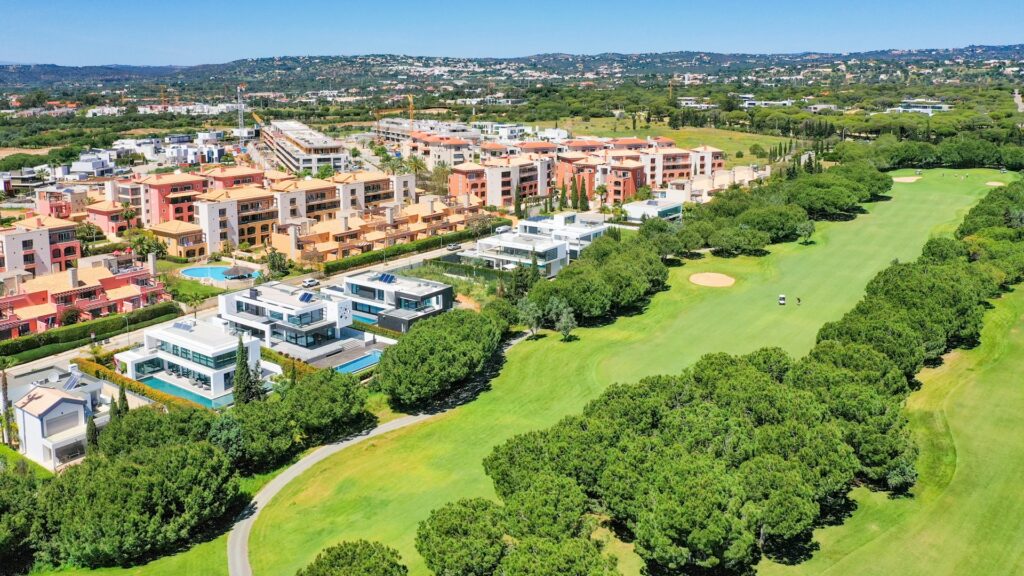
Lisbon
Lisbon, the capital of Portugal, is a top spot for short-term rentals due to its popularity with international tourists and business travelers. The average property price is €3,799 per square meter, with rental rates reaching €19.40 per square meter, offering a yield of 6.1%.
Lisbon’s bustling city life, historical landmarks, and cultural festivals attract a constant flow of visitors. Many tourists and business visitors prefer short-term rentals for their flexibility and convenience. Lisbon’s consistent demand makes it one of the best locations for short-term rentals in Portugal.
Central Portugal
Central Portugal provides a blend of historic charm and natural beauty. This region is home to cultural sites, ancient villages, and scenic landscapes. Properties in Central Portugal have an average price of €1,490 per square meter, with rental rates around €9.30 per square meter, providing a yield of 7.5%.
Short-term rentals in Portugal’s central region attract guests looking to explore its rich history and outdoor activities. The affordable property prices and strong rental yield make this area appealing for property owners seeking income and steady demand.
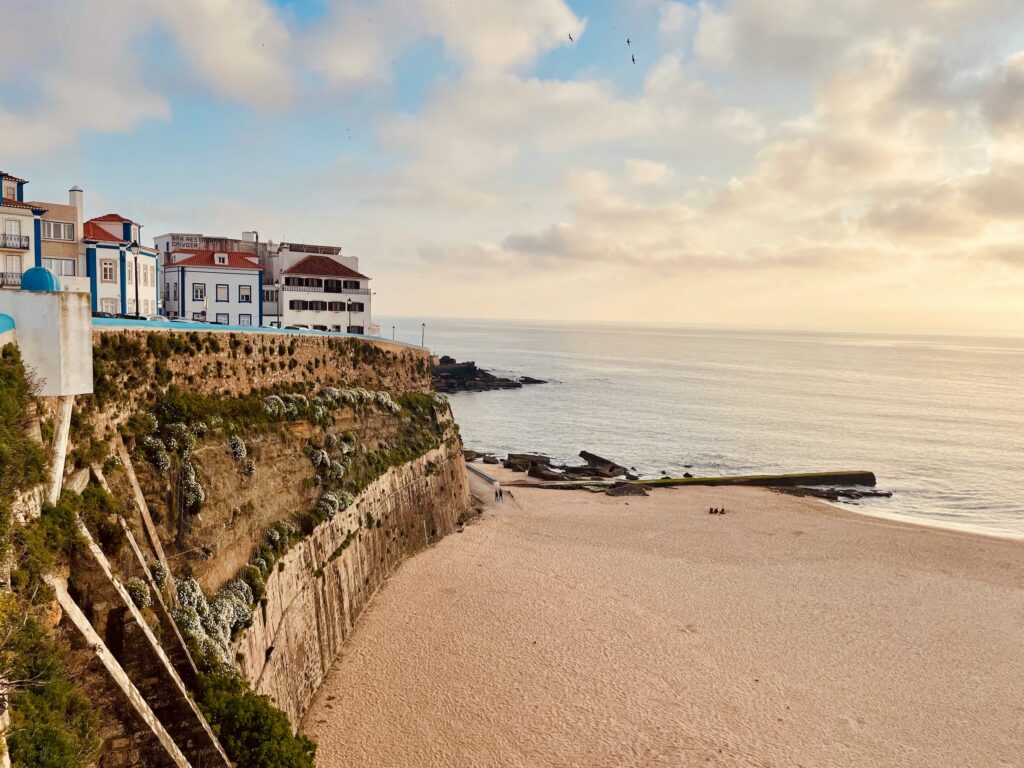
North Portugal
The northern region of Portugal, known for its green landscapes and wine production, offers a strong market for short-term rentals. Property prices in North Portugal average €2,301 per square meter, with rental rates around €14.10 per square meter, resulting in a yield of 7.4%.
Tourists often visit North Portugal for its wine tours, scenic valleys, and outdoor activities. Short-term rentals in this region attract a mix of tourists seeking nature and cultural experiences, ensuring a steady demand for property owners.
Madeira Island
Madeira Island, located off the coast of Portugal, is a popular destination for nature lovers and adventure seekers. The average property price in Madeira is €3,161 per square meter, with rental rates around €13.80 per square meter, providing a yield of 5.2%.
Visitors to Madeira come for its unique landscapes, hiking trails, and year-round mild climate. Short-term rentals on Madeira Island offer owners the chance to tap into the high tourist interest, especially among travelers seeking outdoor adventures.
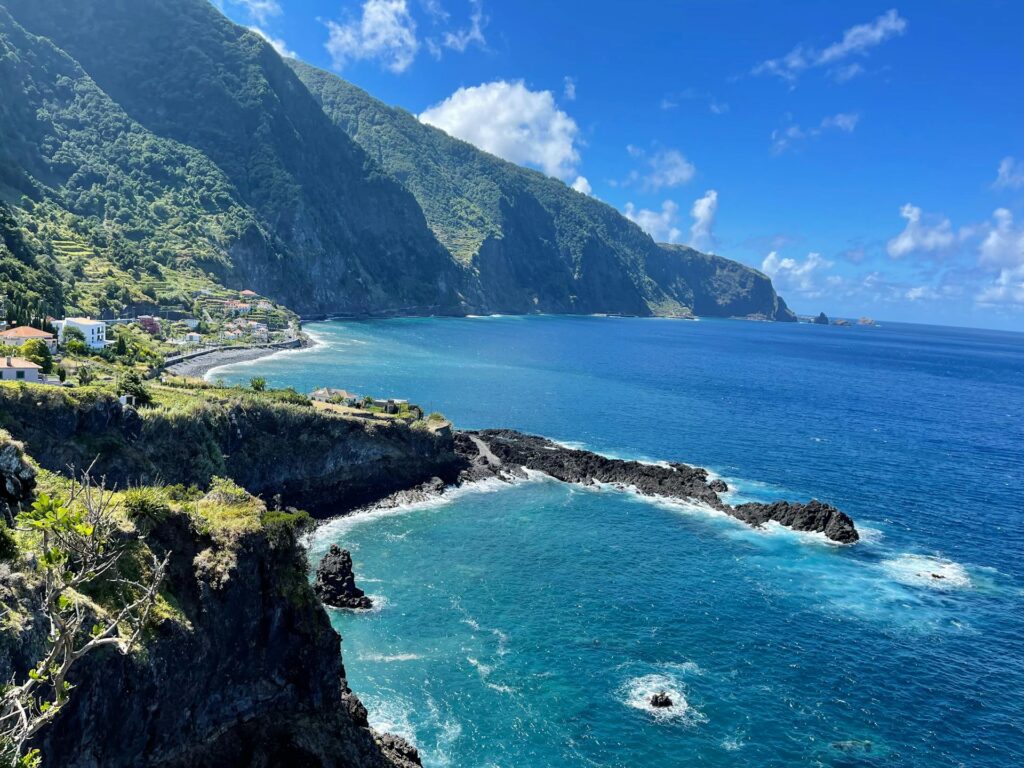
Porto
Porto, known for its historic charm and famous wine cellars, is another strong location for short-term rentals in Portugal. The average property price in the Porto metropolitan area is €2,764 per square meter, with rental rates around €15.40 per square meter, resulting in a 6.7% yield.
Tourists flock to Porto for its old-world architecture, river views, and local cuisine. Short-term rentals in Porto attract both local and international visitors, creating a stable rental income for property owners.
Cascais
Cascais, located near Lisbon, is a luxury coastal area that attracts tourists and wealthy visitors. The average property price in Cascais is €5,191 per square meter, making it one of the more expensive regions, with rental rates around €20.20 per square meter and a yield of 4.7%.
Despite the lower yield, Cascais attracts a steady stream of high-end tourists looking for an upscale coastal experience. Short-term rentals in Cascais suit property owners targeting the luxury rental market, as it draws affluent visitors who prefer premium accommodations.
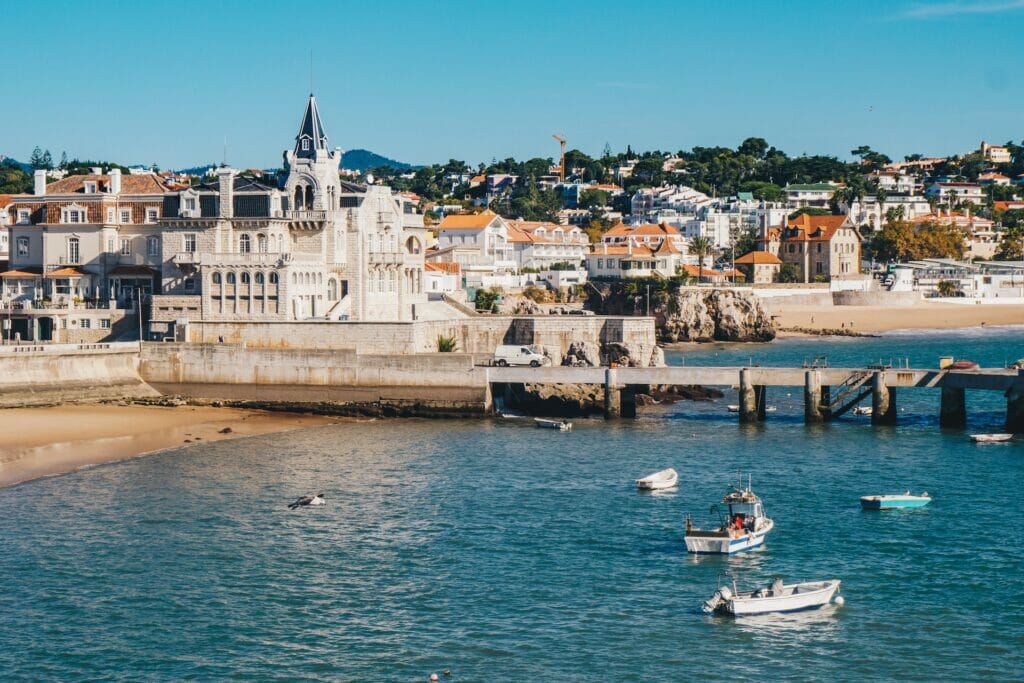
Portugal Short-Term Rental Taxation
In Portugal, property owners who earn income from short-term rentals must pay taxes on their earnings. Short-term rentals in Portugal are subject to tax, whether the owner is a resident or non-resident.
For non-residents, the standard tax rate on rental income is 28%, which applies to the total income earned from the property. Some property owners may choose to use the simplified tax regime, which allows them to deduct a portion of their rental income automatically. Under this regime, the Portuguese government taxes 35% of the income while exempting the remaining 65%.
This option helps reduce the tax burden for many owners of short-term rentals in Portugal. However, residents can also choose progressive tax rates, which vary depending on total income.
Portugal’s short-term rentals also require owners to register their rental activity with local authorities. Owners must issue invoices for each stay and report their income to the Portuguese tax authority. Failing to report rental income can lead to penalties, so staying compliant is essential for property owners.
With the right approach, owners can benefit from the country’s tourism industry while meeting tax obligations. Proper planning and understanding of Portugal’s short-term rentals tax regulations allow owners to operate successfully in this growing market.
How can we help you in find the best investment
At Portugal Residency Advisors®, we help you find the best investment opportunities in Portugal’s property market. Our team focuses on understanding your goals to identify the best options, especially in the short-term rentals Portugal sector.
We start by analyzing your investment preferences. Whether you seek short-term rentals Portugal properties in city centers or scenic regions, we find options that match your needs.
Our support continues with property viewings and evaluations. We check each property carefully, considering factors that impact short-term rentals Portugal success, such as location, condition, and rental potential. We also explain local laws and tax obligations to help you operate smoothly.
Portugal Residency Advisors also assists with the legal process. We handle the paperwork, registrations, and applications needed to secure your investment. Our team works with local professionals to streamline the process, making it stress-free for you.
Frequently Asked Questions About Short-Term Rentals in Portugal
What makes short-term rentals in Portugal a popular choice for property owners?
Short-term rentals in Portugal attract owners because of the steady demand from tourists. Many visitors prefer staying in local homes, making these rentals a profitable option for owners.
Can non-residents invest in Portugal’s short-term rentals market?
Yes, non-residents can invest in Portugal’s short-term rentals. The Portuguese government allows foreign ownership, and many investors earn income from renting to tourists.
How does the tax system work for Portugal’s short-term rentals?
Property owners must pay taxes on rental income in Portugal. Non-residents pay a flat rate of 28%, while residents can opt for progressive tax rates based on their total income.
What is the AL license for short-term rentals in Portugal?
The AL (Alojamento Local) license allows property owners to legally operate Portugal’s short-term rentals. This license ensures the property meets safety and quality standards required by law.
Are there specific locations where short-term rentals in Portugal are in high demand?
Yes, Lisbon, Porto, Algarve, and Madeira are popular for short-term rentals in Portugal. These areas attract a large number of tourists, ensuring high occupancy rates for rental properties.
What are the main requirements to operate Portugal’s short-term rentals legally?
Property owners need an AL license, insurance, and safety measures like fire extinguishers to run Portugal’s short-term rentals. They must also register their rental activity with local authorities.
Do short-term rentals in Portugal have good income potential?
Yes, Portugal’s short-term rentals provide steady income, especially in tourist-heavy areas. Many property owners benefit from high occupancy rates and demand for vacation rentals.
Can I manage short-term rentals in Portugal from abroad?
Yes, many owners manage Portugal’s short-term rentals remotely. Some hire property management companies to handle bookings, maintenance, and guest needs while they remain abroad.
Are short-term rentals in Portugal a good long-term investment?
Yes, Portugal’s short-term rentals offer a stable market for long-term investment. The tourism industry’s growth supports rental demand, making it a reliable income source for property owners.




